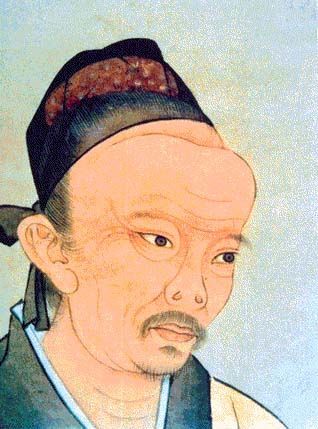 Its Dragon-Boat Festival day, and I'm reading up on history of Song dynasty.
Its Dragon-Boat Festival day, and I'm reading up on history of Song dynasty.
The day, also called Duan Wu, is to commemorate the great romantic poet, Qu Yuan, who drowned himself when his State was conquered by the Qin the Emperor I. In an attempt of cultural revival, the Chinese government has made the day a national holiday. It's rather a curious choice for me, since I remember when I was little, not much celebration was on other than eating wrapped rice bun, comparing to other traditional holidays. I saw more dragon boat race in America than in China. So, maybe that's another export-reimport thing.
Talking about cultural revival, don't be surprise if you see two Chinese argue passionately over which dynasty was the best, the strongest. Was that Tang when the empire had reach as far as the central Asia? Was that Song when a rich civil society was at its peak? Or was that Ming when governing cabinet was nearly as modern as the current British installment? You won't find short of people who wish to be teleported back to ancient China as well. It can all get a bit silly sometime, but people are reading up history, often not content in relying on the official version taught in the school. It helps anchoring the value system and finding the roots in this ever globalized world.
Among those revivals, various ideas of political Confucianism are also proposed. But to my disappointment, most of them don't know what they are talking about, and they don't go beyond what was understood hundreds years ago.
Let's get this straight first, what best describe the current Chinese political system? IMO, it should be authoritarian meritocracy. At the core, it is not much different from the system that was practices in Confucius China hundreds years ago. As an interesting side-note, the concept of middle-class society (小康社会)was an ancient Confucius concept also: tend to their own parents, son their own son, work hard for selves (各亲其亲,各子其子,货力为己). It was in contrast to the Great Unity (大同) concept: tend to not only own parents, son not only own son(不独亲其亲,不独子其子).
However, Confucianism and democracy - if not American style - isn't mutually exclusive. A related interesting article from Guardian states that the Chinese authority survives by buying off the middle-class. It sees through the typical Western "communist" lens, rather than seeing the power structure as a morphing authoritarian meritocracy. It should also be noted that "buying off the middle-class" is exactly how Western style democracy works.
Some of the challenges that faced Song administrators also face todays Chinese power-that-be. For example, how to guarantee smooth power transition? How to govern efficiently locally and how best deal with the central government's relationship with the local's.
Of particular interest to me, is the role of information in structure design. In the recent earthquakes, we have seen how easily rumors arise, how difficult it is to verify and root it out. Correct information is also central to the governing of an authoritarian meritocracy. In Song dynasty, officials fortunes rose and fell along with difficult-to-verify reprimands (谏), especially for those in the remote areas. Modern communication makes the top-down management more efficient, but it still has severe limitations. So, local monitoring, or democracy if you want to put it, is most useful and urgent on the local level. And it should enhance the governing tremendously. Then there are rule of law, transparency, accountability, and balancing of power, and all that, if it ever comes to fruition.
[update: A diversified China with strong local content is also on full display with the new argument over the origin of Dragon-Boat Festival. Su Zhou, city of the ancient Wu decent, recently claims that the festival is originated from commemorating Wu Zixue, a famous general in the ancient state of Wu.]
As the man who is to be honored on this holiday said: The road is long and winding, We'll seek up and down(路漫漫其修远兮,吾将上下而求索).
——————————————————————————————————————————————————————————————————————————————
ps: Some funny comment on the internet about Qu Quan's poem, LiSao(离骚).
- I bow to Qu Yuan. It's so long, I can never memorize this before I die.
我这辈子死之前肯定背不出来
- by a student - How many xi(兮)is it there in the poem? Inserting many xi(兮)must be a way to get more publishing fee by ancient people - by a random writer.
屈原多写几个兮多挣几个稿费
 del.icio.us me
del.icio.us me


纪念一个人的最好方式,就是为他发明一种食物,而且每年只有纪念他的时候才能食用。
ReplyDelete而不像现在,到处都是,随时可以...
偶有点被粽子搞烦了。
Only cultural activity I saw was the dragon boat race in Hong Kong. Of course, Shenzhen is devoid of most things cultural. Which is probably the reason why I've never heard any conversations about any dynasties of China.
ReplyDeleteI won't bother touching the political situation...in China or elsewhere.
Yeah, years ago I heard people call Shenzhen "cultural desert", I wonder if they still call it that. Well, you have the "miniature world". :)
ReplyDelete